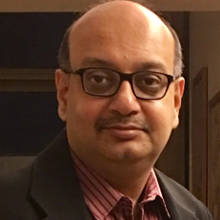[Image by Gerd Altmann under Creative Commons]
I've had my fill of conversations around innovation this month. Thanks to a public workshop we'd hosted, I met participants from a range of companies: early stage and mid-sized entrepreneurial ventures and large corporations. On the side-lines, we also hosted a mini-Design Lab on Making Innovation Happen, involving about 15 CEOs of some of India's frontline firms.
During this period, there were many critical issues that surfaced, but one thing seemed clear: for India Inc., innovation is now where total quality management (TQM) was nearly two decades ago. It is perhaps the single most important priority that business leaders are grappling with. Clearly, they've got their hands full.
Turning innovation into a repeatable process, building a culture of innovation, sensing and responding to emergent tech innovation, instilling the DNA of agility...there were so many facets to the conversations.
Yet if there's a specific leadership challenge that's visible, it is this: business leaders who've grown up during the TQM era are now struggling to realise that innovation requires a somewhat different mind-set and approach.
Take a look at some of the hard-charging CEOs of our frontline IT firms. Many of them did an excellent job of building an efficient, tightly run firm that snatched away business from large global IT corporations. Today, each of them have challenged their internal teams to drive innovation agendas for their big global clients. Are the internal teams geared to do that? The answer, in many cases, is no.
As a senior business school professor of Indian origin who heads a centre for innovation management at a leading global b-school told me over lunch a few days ago, while TQM helped cut out wastage and made firms a lot more efficient, innovation, on the other hand, actually requires a bit of organisational slack.
Also, nurturing an experimentative culture requires a new set of leadership tools that allow variance and controlled risk-taking to flourish. Typically, TQM tools help cut out both risk and variance. Innovation, by its very definition, requires exploration and discovery, and therefore, greater risk-taking. And that's where tools, like design thinking, allow for both divergence and then convergence through a series of steps. And that way, control the risk. Most firms have neither built such an internal culture of experimentation nor have they assimilated these new tools that allow new kinds of creative brainstorming, prototyping, etc. to flourish. Above all, for them, listening and working closely with end-users still remains for most part, both an art and science that they haven't quite mastered.
So here's the moot point: are the IT CEOs who ran a tight set of operations in the last 10 years really the best bet for the next 10 years, the professor asked.
That's a real question that their boards will need to grapple with. In the US, Satya Nadella, and to some extent, Sundar Pichai are already proving to be two good examples of CEOs who are the anti-thesis of the aggressive, hard-charging CEOs that we've become accustomed to in the recent past. In India, although he's had a long reign at Titan, I'd perhaps see Bhaskar Bhat in the same leadership mould. And about three weeks ago, we also met Sandeep Bakshi, the quiet, low-profile CEO of ICICI Prudential. He spoke to us about how he had completely junked the concept of a head office. Instead, he had split the country into more than 30 micro-markets, headed by mini CEOs, who were responsible for driving market share. Bakshi said their new role was to support and serve their colleagues in the field. Most large organisations are faced with a peculiar problem: their best managers don’t want to plumb for the more risky assignments because it would potentially harm their careers. He said they had actually found a way to get around it by re-aligning their incentives that encouraged leaders to take on more challenging assignments. Here’s the upshot: the move to create a more enabling environment had paid off for them and their market shares had shown a healthy jump, at the expense of the market leader LIC.
In my book, these CEOs tend to engender greater trust within the firm. They know how to balance the long-term and the short-term by building an overarching purpose that goes well beyond just narrow financial metrics. They're also good listeners who aren't interested only in the sound of their own voice. And they're able to drive clear innovation agendas by continually bringing the voice of the customer into the business and committing and aligning their firms to the big business opportunities that still exist out there for those who are willing to push the boundaries of their own mind.
Above all, these CEOs don’t spend their time worrying about macro-fundamentals and pontificating about the health of the economy and the markets through long television debates. They are able to spot new business opportunities and build a more committed team that is focussed on the task at hand.
[First published in Business Standard.]


